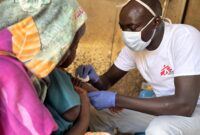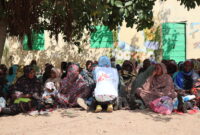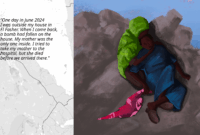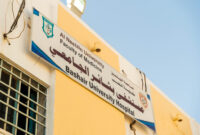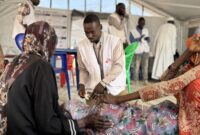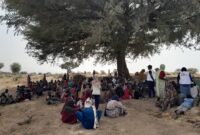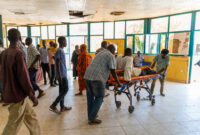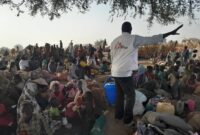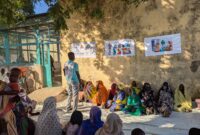Contrasting Realities: Reflecting on Sudan this Mother’s Day
This post was originally published on LinkedIn on May 17, 2024.
A few weeks into my new role as Executive Director of Doctors Without Borders/Médecins Sans Frontières (MSF) Canada, I woke up this past Mother’s Day to contrasting realities.
As I spent the morning with loved ones, my thoughts were also with two mothers who mourned in #Sudan. Their children were killed as ‘collateral damage’ in an airstrike the night before while getting treatment in what should have been a protected space – a pediatric hospital.
The strike was so close to the facility that the roof over the ICU collapsed killing the children and at least 1 caretaker.
I sat with the knowledge that this tragedy that took place at an MSF-supported facility in El Fasher, North #Darfur had grave impact on people who needed medical care the most. The Babiker Nahar Pediatric Hospital was one of the few specializing in treating sick children despite the year-long brutal civil war. It received referrals from across the Darfur region because so many others had been forced to close. Children in this hospital were receiving treatment for conditions such as malaria, pneumonia, and malnutrition.
Many would walk for days to reach it.
Just last week, 115 children were being treated at this hospital, and now, no one is. With yet another health facility forced to close, those seeking treatment will now have to make their way through a healthcare system operating at just 20 to 30 per cent of its original capacity.
For weeks, MSF has been trying to scale-up our activities in nearby Zamzam camp for displaced people in response to the catastrophic malnutrition crisis unfolding there. We have been sounding the alarm since Feb. when a rapid assessment revealed a child dies every two hours in this camp. This assessment was followed by a mass screening of over 63,000 people. Of the 46,000+ children who were screened, a staggering 30 per cent were found to be suffering from acute malnutrition, eight per cent with severe acute malnutrition (SAM). Similar figures were found among the 16,000+ pregnant and breastfeeding women: 33 per cent were acutely malnourished, 10 per cent with SAM. For both groups these figures are double the emergency threshold.
The reality in Sudan today is that with little food, clean water or healthcare available, illnesses that could once be treated now kill. Far from the media spotlight, the lives of hundreds of thousands of people were already in jeopardy and now, with the current escalation in fighting, even more are at-risk today as it becomes increasingly difficult for the much-needed support we have been calling for to arrive. The lack of food combined with a breakdown in health services requires international support at the highest emergency levels.
MSF remains almost completely alone in parts of Sudan and, as a result, one of the few organizations able to respond to mass casualty events that have become a frequent occurrence in El Fasher over the past two weeks.
On Friday, May 10, 160 wounded people – including 31 women and 19 children – arrived at the MSF-supported South Hospital in El Fasher. Of these, 25 were wounded people in terminal condition upon arrival and have since passed away.
By Sunday morning, a parent’s worst nightmare came true. Two children were killed while in critical condition in our ICU in the pediatric hospital where, with appropriate treatment, their lives could have been saved.
It is unacceptable to have innocent civilians and health structures caught in the middle of any conflict and a pediatric ward feels doubly wrong.
As of today, 489 casualties have reached South Hospital, but we fear there are many more wounded who have been unable to seek treatment due to the intensity of the recent fighting. Supplies are running out and we urgently need safe access and authorizations from the warring parties to be able to replenish our stock.
MSF is urgently calling on the warring parties in Sudan to ensure the protection of civilians, healthcare structures and staff to allow vital assistance to flow for the tens of thousands of people whose lives are at risk. Without these basic conditions, it will not be possible to turn the tide on this colossal humanitarian crisis that will steal the lives of countless more, including children.
See original post on LinkedIn here.


